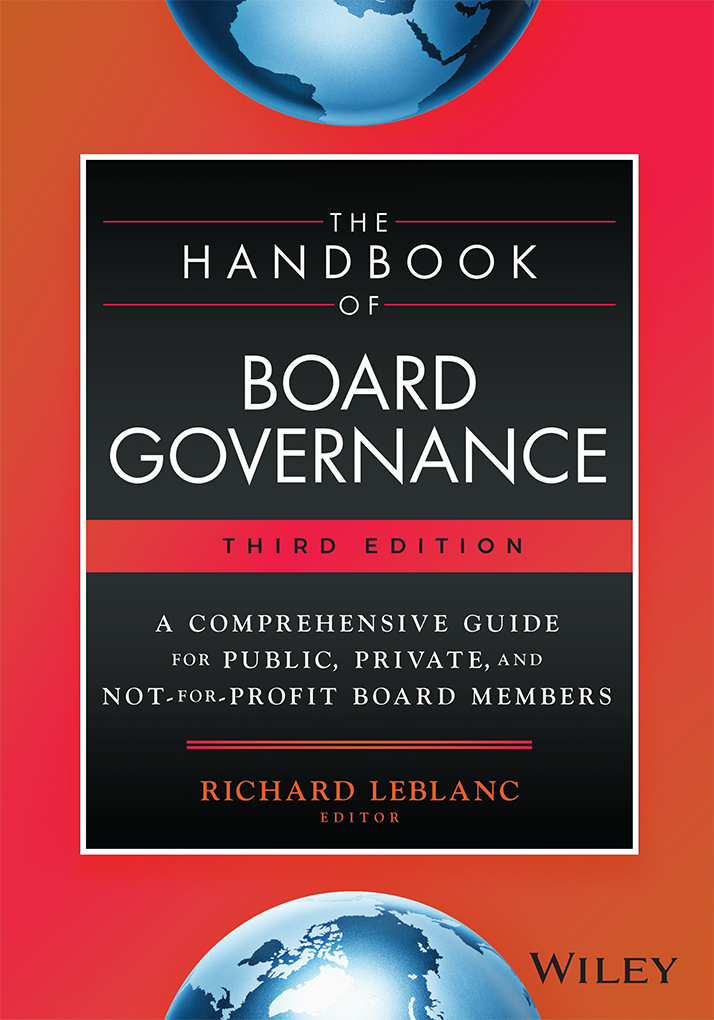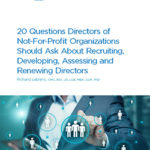“The Board Chair is owned by the CEO,” directors told me after I was called in by the regulator to assess the board. The Chair owned a condo next to the CEO and was a close personal friend. I have not assessed a board when there was not at least one director, and oftentimes, after governance failure, several directors who are viewed as non-independent by their fellow directors, even though these directors are independent by regulatory standards.
Academics have never been able to show that independent directors strengthen company performance for one major reason: true independence is not being measured from the outside, and can readily be undermined by clever, self-serving management and directors themselves by allowing it to occur. Bright-line independence tests or rules can be out-smarted, and many fail to capture the underlying conflicts of interests.
In my research involving shareholder activists, activists tell me how they investigate director backgrounds to show the compromising of independence. Activists’ inherent presumption is that each director is non-independent to begin with. They are put in place by management or other directors, not shareholders.
Here are the ways directorial independence is compromised, before or after a director begins to serve: a close social or personal relationship with another director or member of management; serving on another board or in another business relationship with a director; excessive tenure on the board; excessive director pay or expenses; an office at the company for the director; the use of secretarial staff; gifts such as cigars; vacations with other directors, a significant shareholder, or management; jobs or contracts for acquaintances or referrals of the director; lunches, dinners, entertainment or sporting events with a small group of directors and management (rather than collective board dinners); informal collaborating in a decision by a board or committee chair with management in advance of the meeting; boards or committees not hiring independent advisors but are beholden exclusively on management; directors taking advantage of a corporate opportunity, resource or perquisite with full knowledge (or not) of other directors; or having a bias towards a particular stakeholder in board deliberations (including a significant shareholder).
There exists pressure on Canadian directors to allow their independence to become diluted, directors tell me, and to be collegial in this dilution. I have interviewed some of the top board chairs in Canada, and one of their major concerns was the “slippery slope” of directorial independence. I have found that directors can become less independent, but I have never found them to become more independent. Boards, in theory at least, should decide what degree, if any, of independence slippage (see all of the above real examples) they are willing to tolerate.
If one or more directors has their independence compromised, particularly a board or a committee chair, then governance failure can and does occur. Conflict-seeking directors are toxic to a board and should be removed. Directors know which director(s) has lost their independence. By the time I arrive, I am confirming what they already know and failed to act upon. A trained outside expert can readily observe captured directors during board meetings, interviews and customized questions.
Why is There a Director Independence Dis-connect?
If director independence is compromised and regulatory standards fail to detect this, then the regulators have failed. It should not be possible, if regulators are doing their job, to have a director who is not independent, inside the boardroom, and at the same time that director complies with independence guidelines outside the boardroom.
What is the Standard for Independence of Public Company Directors in Canada?
Directorial independence in Canada is presently a subjective standard (what directors believe), rather than an objective one (what is reasonable to believe). This means that if directors collectively believe that a director does not have a “material” relationship that can reasonably be “expected” to “interfere” with that director’s independent judgment, then that is the end of the analysis. The absence of an objective, reasonable or perceived point of view is anomalous when it comes to overseeing conflicts of interest in the workplace, so why should boards be any different? What should matter is what is reasonable, not what a director or a board believes. This subjective view can be unreasonable.
How Can Director Independence Be Strengthened?
Director independence is important because independent directors control management. It is important to get independence right – in theory at least – but also in practice if directors are to possess independence of mind coming onto the board and maintain it once they are on.
Here are some reforms I recommend and use to address director and board independence:
- Regulatory reform should occur so independence of directors espoused by regulators equates with actual independence inside boardrooms. An objective, reasonable person standard should be used.
- Boards should enact a robust conflict of interest policy, for directors, not drafted by management, and this policy should be disclosed to shareholders.
- Independent advisors should facilitate an annual peer review of director independence, as is done in the United Kingdom. The review process should be disclosed and acted upon.
- Codes of conduct should be drafted (not by management) to apply to a board of directors. Boards should not be using the company code because director independence issues are not captured.
- Boards (and if not, regulators) should impose reasonable term limits on director tenure, beyond which the director is not regarded as independent, as is done in several countries.
- Boards should require the confidential disclosure of directorial perceived conflicts (including assets and financial information relevant to the company’s business) to the audit committee, including that of family and affiliates of the director.
- Audit committees should review and recommend to the board perceived conflicts of interest by directors, and should create a special committee of independent directors who are independent of the matter and the director, if and when required, with independent advisors retained by the audit or special committee.
- An anonymous procedure for reporting on directors who do not disclose potential conflicts should exist, to the audit or special committee.
- The governance committee should recommend independent board and committee chairs, and the board chair should be selected by confidential ballot without the CEO being present or unduly influencial.
- For significant shareholder boards, independent directors should be chosen by and from minority shareholders, so a portion of directors are independent of the significant shareholder, commensurate with the significant shareholder’s portion of common shares.
- For widely held boards, shareholders should select a portion of directors so directors are independent of each other and management.
- Boards should disclose the origination of each director, namely how that director came to be recommended for election by shareholders.
- Boards (and if not, regulators) should diversify themselves so directors do not come from the same homogenous pool and are independent from one another.
Dr. Richard Leblanc, Editor of The Handbook of Board Governance (Wiley, 2016), can be reached at rleblanc@boardexpert.com.
Posted by Richard Leblanc on Nov 7, 2016 at 2:48 pm in Board and Committee Leadership, Independence and Role Clarity |












